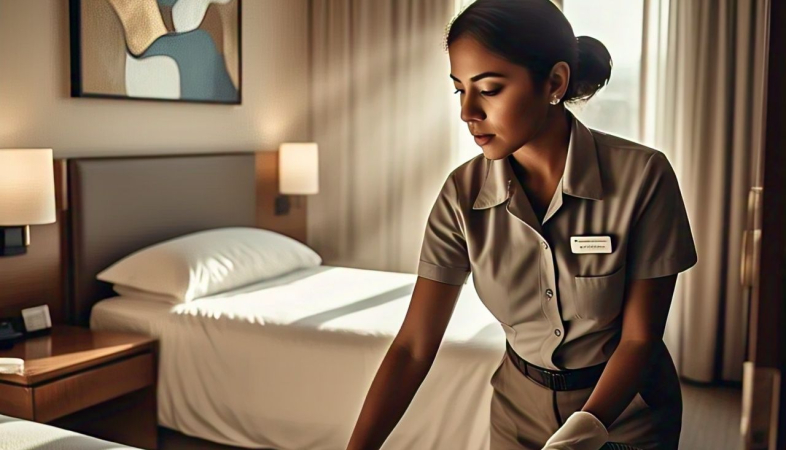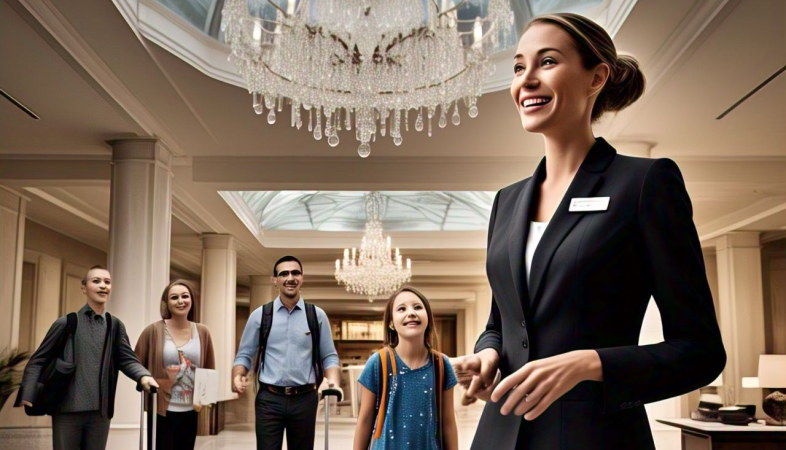Virtual Reality Training for Housekeepers: A New Era in Hospitality Training
As more hotels recognize the advantages of virtual training, the use of VR in housekeeping is expected to grow.
The hospitality industry is embracing technology like never
before, and virtual reality (VR) training is at the forefront of transforming
how hotel housekeepers learn and perfect their skills. Instead of relying
solely on traditional training methods, hotels are now using VR simulations to
provide immersive, hands-on experiences that help staff learn faster and more
effectively.
One of the biggest advantages of VR training is that it allows housekeepers to practice real-life scenarios in a risk-free environment. From learning the correct way to make a bed with hospital corners to handling hazardous spills, VR provides a safe and controlled setting to master essential tasks without disrupting daily hotel operations.
Consistency in training is another major benefit of VR. Traditional training methods vary depending on the trainer, but VR ensures that every employee receives the same high-quality instruction. Housekeepers can experience standardized lessons on cleaning techniques, sanitization protocols, and even emergency response procedures, improving overall efficiency and service quality.
VR training is also highly interactive, making learning more engaging and enjoyable. Instead of simply watching demonstrations or reading manuals, housekeepers can navigate virtual hotel rooms, complete cleaning tasks, and receive instant feedback on their performance. This gamified approach increases knowledge retention and boosts confidence before they start working in real-world settings.
Beyond technical skills, VR training can enhance soft skills like time management and attention to detail. Simulated scenarios can teach housekeepers how to manage their workload efficiently, prioritize urgent tasks, and identify common guest preferences, leading to better guest experiences and improved productivity.
Hotels that invest in VR training not only benefit from well-trained staff but also see reduced onboarding time. New hires can quickly get up to speed without requiring extensive supervision, allowing managers to focus on operations rather than lengthy training sessions. Additionally, VR training can be updated easily to align with new cleanliness standards or evolving industry trends.
As more hotels recognize the advantages of virtual training, the use of VR in housekeeping is expected to grow. This modern approach not only improves skills and efficiency but also demonstrates a commitment to innovation and employee development, making it a win-win for both staff and guests.
.png)




























